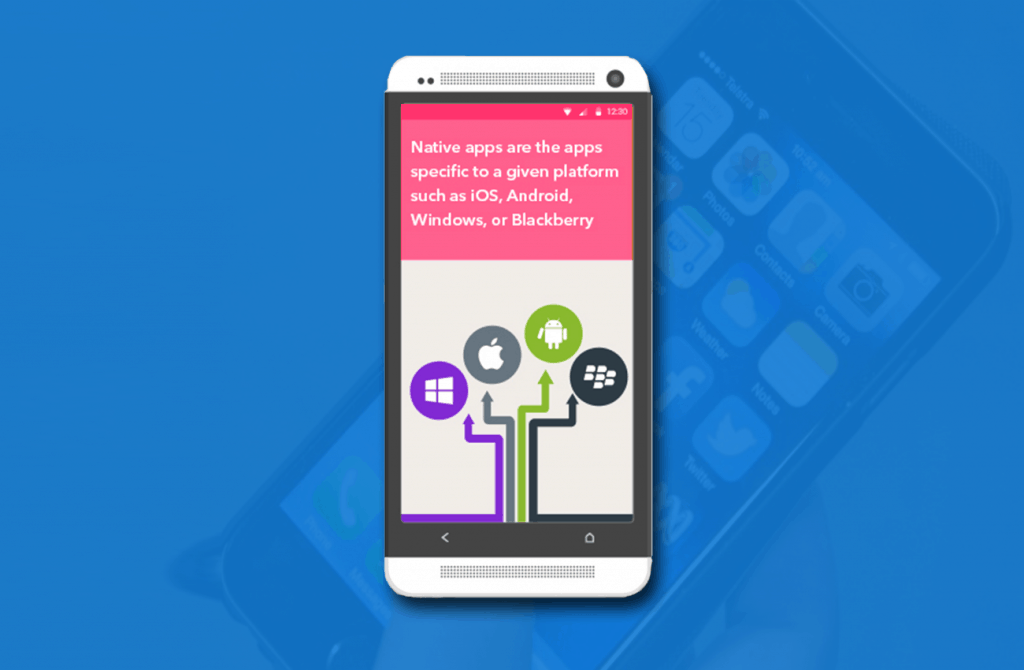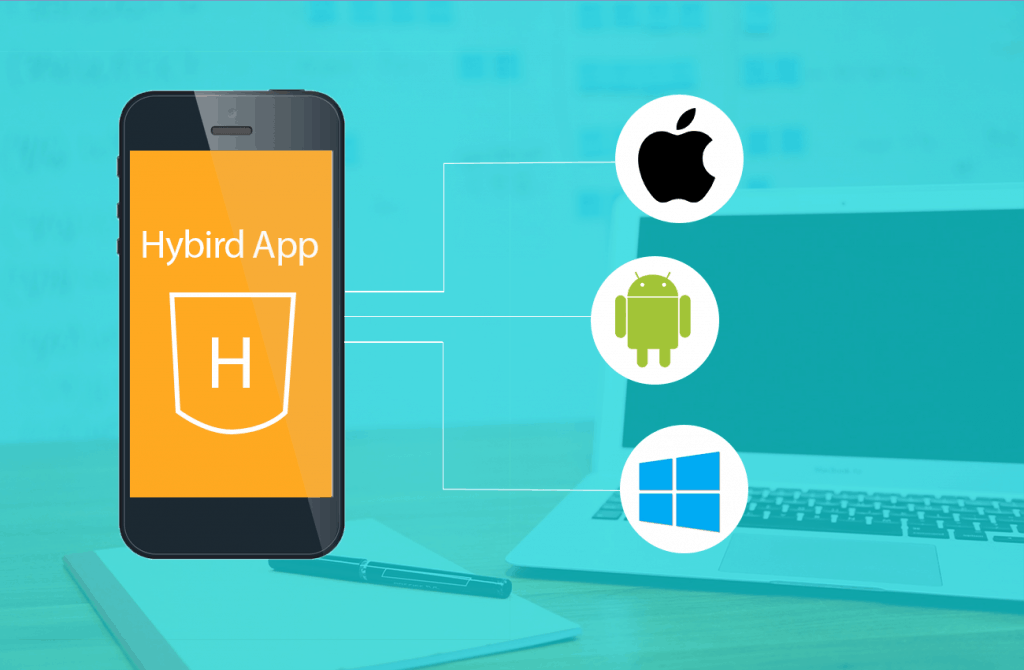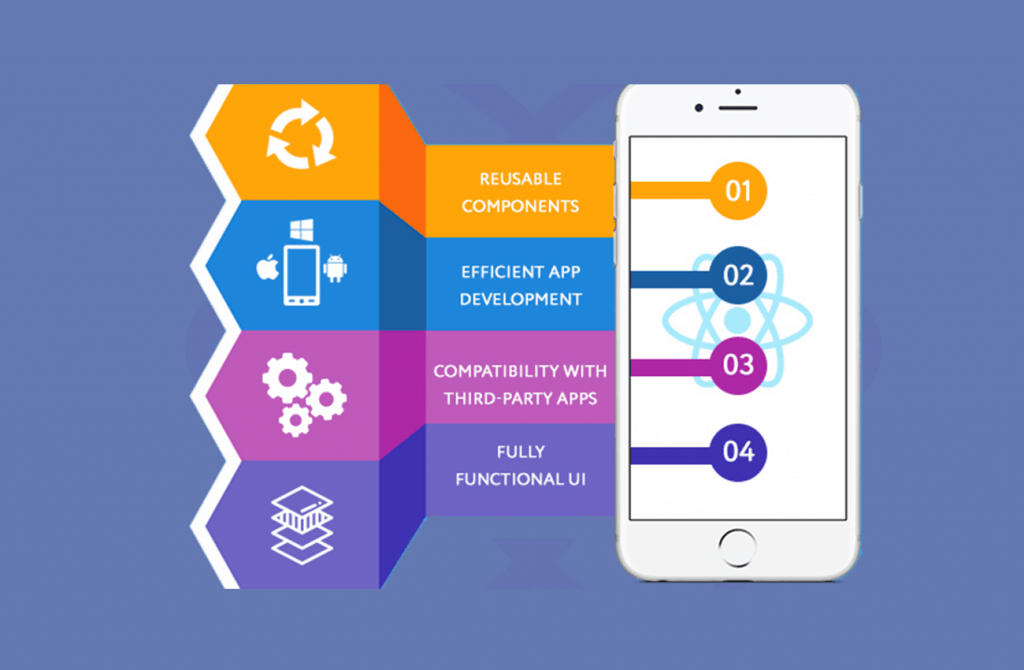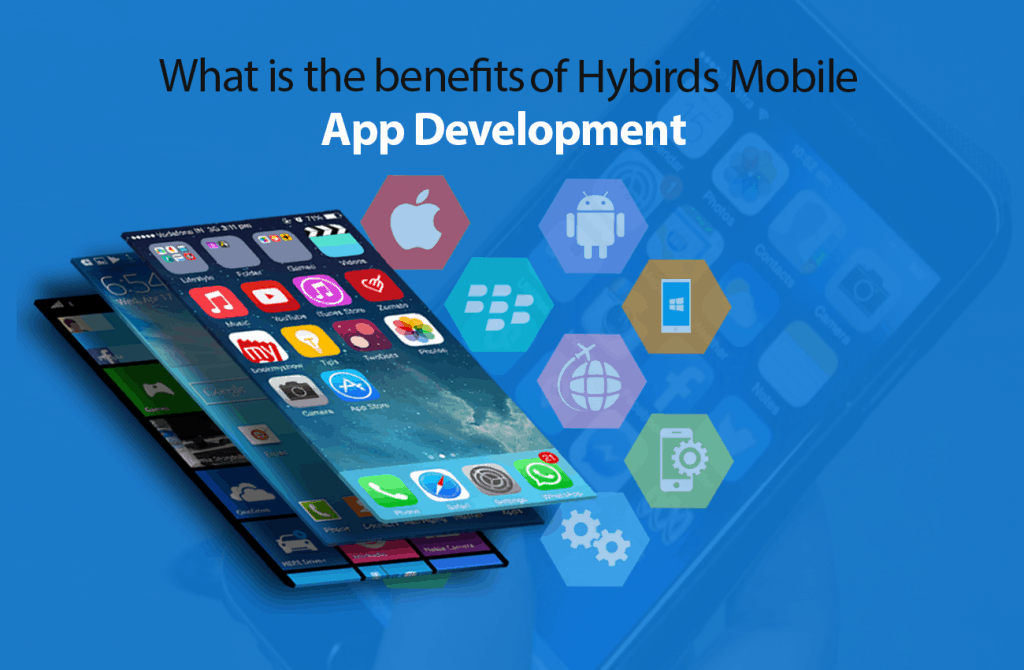Native Vs Hybrid Mobile Applications – The Ultimate Guide
Old news; the number of smartphone users making online searches have exceeded the number of desktop users.
New news: Mobile app development industry is set to overrun the website development industry in the next few years…
Well, this isn’t a prediction out of thin air, rather we have numbers backing our claims. Just last year, the mobile app development market sores more than 50% – a clear sign of expected future dominance.
Now, the entrée of Chinese smartphone manufacturers in the market has tremendously up-the-ante for the smartphone industry as more and more affordable smartphones have led to a massive increase in smartphone users. This, in turn, has also up-the-ante for mobile app developers who fight off the battle to keep up with the high demand.
The two of the most popular mobile platforms iOS and Android has remained another challenge for developers. While native mobile applications have remained a legacy choice for many developers, today the trend of hybrid apps is challenging that legacy, making it an interesting battle between Native Vs Hybrid app development.
Now, if you are a mobile app geek like us and want to know which app is better than continue to read on as we take you through everything you need to know about Native vs Hybrid app development.
Mobile App development trend and the importance of UI/UX
Ok, before we go into any details about the native or hybrid mobile apps, let’s look at one of the most fundamental and crucial features for all apps – the user interface and user experience (UI/UX).
The reason why UI/UX is the most important aspect for any mobile app is that it’s the face of your app and establish how customers will interact with your app. To put it simply, with hundreds of choices at their disposal, users are most concerned for the user interface experience and how they can interact with the app. least are they concerned about the technical aspects that go behind app development.
And since most of the users (apart from real coding geeks) are only concerned about what they can achieve with their app, the prime focus for all mobile development app process should remain; offering a highly interactive and easy to navigate user interface.
To put this in perspective, nearly 80% of users uninstall the app if they don’t like the interface in the first look. That means irrespective of the functionality offered by the apps of the technology that goes behind app development; users are only concerned with the utility of the app interface and a poor interface will only result in more users uninstalling the app.
If you don’t have the time or patience to read the detailed analysis, here’re some quick highlights for your interest:
Native App
A native app refers to a mobile application which is specifically created for a certain (single) platform that is it’s either made for iOS or Android.
The reason why it’s called a native mobile app is that this app is developed using the native programming of the operating system i-e:
– Swift or Objective-C for iOS app development
– Java or Kotlin for Android app development
Now, you can easily find detailed tutorials and guidelines for each of these languages online to help you get started with a native app development process.
Hybrid App
A hybrid app refers to a special customized app that can be used on multiple platforms (iOS and Android).
To put it in simple perspective, hybrid mobile apps are the next version of native apps that combines native apps with web apps and since it’s a single product for multiple platforms, more developers are preferring it as a mean to save on development efforts.
While at the front-end hybrid apps feels almost similar to native apps, these are created using HTML 5, CSS & JavaScript and run on the company website.
Native app development Vs Hybrid App development!
OK, now that we are done with the basic differentiation between the two types of apps, let’s dig deep into the developmental procedure, advantages, and disadvantages of the two apps…
Native App Development
Starting with native apps; these are the legacy apps which are developed using native programming languages of platforms, that is, Objective-C or Swift for iOS apps and Java for Android apps.
Scratching below the surface, each programming language for native apps come with its own unique set of frameworks. Native apps started as the companies feel the need to develop interactive apps that can be embedded in the mobile device. Some of the common examples of native apps include the Gallery, Alarm Clock, and Music Player, etc.
Benefits of Native App Development
– Speed and performance
The fact that native apps are developed using programming languages of the platform means that their performance level is way better as compared to hybrid apps. In fact, the performance level of native apps is even boosted for the reason that during the development phase various aspects of the platform (battery, memory, etc.) are considered beforehand, which seals its performance levels against hybrid apps. Moreover, it’s also easier to integrate various functionalities in native applications like maps and gestures as compared to hybrid apps.
– Data protection
Native apps are inherently secure and better protected with strong connections to mathematics. Again, since these apps are developed using native programming languages, they are less prone to breaches with effective hardware resources.
– Flexibility
Native apps offer higher flexibility in terms of access to all features of a mobile device like camera, contacts, geolocation, etc. Alternatively, since hybrid apps are developed keeping in mind use over multiple platforms, it’s difficult to achieve the same level of access and flexibility from them.
– Customization
With a large variety of Android devices (different screen sizes, varying operating system versions) native apps are the only real choice for developers to create the perfect app that adjusts for all devices of a certain platform.
– Testing convenience
It’s much easier to conduct app testing like checking for memory usage etc. for native apps as compared to hybrid apps.
– App Store Support
Android’s Google Play or Apple App Store favours native apps that are specifically developed for that platform. This is especially true for Apple that likes to set high standards for its devices. If you got a smartphone right now, check out the apps that are listed as “Features Apps” for any of the two platforms. Most probably you won’t find many hybrid apps in that lists (probably you’ll find few gaming apps but that isn’t systematic to start with), which clearly shows that native apps received better support from app stores.
– Technology
Native apps offer better support for technological updates. It’s easy to offer automatic updates for native apps as soon as the newer version of the operating system is released, which means native apps are more prone to offer better interaction and updates to users.
Limitations of Native Apps:
– Higher cost
Since native apps are developed with a lot more focus on each and every aspect of development it required more time and resources which subsequently increase the price of native mobile apps
– Support
Since native apps are only developed for specific platforms, you need twice as many resources to develop, fix and debug native mobile apps for both platforms
Hybrid App Development
Now, the process of development is the main differentiator between native and hybrid apps. As we move towards hybrid apps, here we have a case where the whole development process is completed in a single step, against multiple steps required for native apps. In this case, there’s no need to using platform specific programming languages (Swift or Java), rather the standard development languages like HTML 5 or CSS (also used in web development) is used in this case. This also means that there can be multiple ways to develop a hybrid app and that you can discuss the process with the developer.
Now, let’s see some of the benefits of Hybrid mobile apps:
Benefits of Hybrid App Development
– Support
One reason why there’s a strong trend for hybrid apps is the fact that its development process is much simpler and straightforward compared to native apps. Moreover, following the standard web development practices, it’s easier to fix bugs or make updates for hybrid apps.
– The faster and cost-efficient development process
Another reason why hybrid apps are trending is because of its cost-efficient and faster development process, which gives smaller businesses the ideal way to start making in-roads into the app industry. This is mainly because the developer won’t have to write separate codes for separate platforms neither the designer would have to redesign graphics again and again.
– Starting Base Operations
OK, another great benefit of hybrid mobile apps is that you’ll already have a starting point for its development, provided you have a mobile-responsive website. That’s because of the similar programming languages used in the development of mobile-responsive websites and hybrid apps; which makes it easier to copy various sections of code for the faster development process.
Limitations of Hybrid App Development:
– Increased cost and development time
No, we haven’t made a repetition mistake here. Now, while the development of the hybrid app is much easier and faster than native apps, statistics show that there is a greater number of bugs and errors related to hybrid apps, which also means that it takes longer time to update and debug the apps over a period of time, subsequently also increasing the development cost.
– User Experience
While it’s much easier to maintain user experience in native mobile apps, unfortunately, same can’t be said for hybrid apps. That’s primarily because the developers are pressed against the necessity to create a responsive interface that can function smoothly on multiple platforms (iOS and Android). Thereby, they need to keep things in a delicate balance; else the app can poorly perform for one platform or the other.
– Decreased productivity
Perfecting the features like animations, clicks, and scrolling for hybrid apps can be a difficult task and may take months for developers to strike the perfect code. That’s one major reason why if you are to ask ten mobile app developers of their opinion about which app is faster to develop (Native Vs Hybrid app), majority of them will respond in favor of native apps. Again, the fundamental reason for this is because the developers have to strike the perfect balance for multiple platforms and that may result in lost efficiency.
– Dependency on native app developers
OK, one of the major drawbacks for hybrid apps is that they would have to rely on native app developers to come up with standard solutions for functional problems, which mean added resources and added development price for the business.
– Compatibility
Unfortunately, it’s now possible for hybrid apps to receive fast updates or have high compatibility with new versions of OS. To be able to update the app, developers would have to wait for the new OS and then only they can update the support and compatibility of the app with new features offered by the new OS.
Summing Up:
Well, there you have it, everything that you would need to know about native or hybrid apps. Remember, mobile app development trends are changing fast and thanks to high user demand, more and more technologies are evolving the industry for the better. With a high growth rate, businesses need to invest in the right mobile app development trend such as iOS & android app development, to be able to reap the benefits of this rapidly growing industry
Now, coming back to our battle between native and hybrid apps; keeping in view the strengths and limitations of both type of mobile applications, it can be safely concluded that native apps are more robust, compatible and better suited to meet UI/UX needs of users. The only time when hybrid apps can compete with native apps is in the domain of gaming applications. That’s because gaming apps don’t require many features and can be adjusted easily for multiple platforms. Other than that, native apps are clear winning in every regard.






